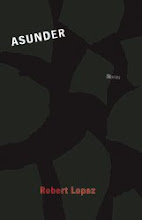True story: When I was twenty I was sent to see about a dead woman on some railroad tracks. I’d only been at the newspaper a few weeks. I drove out to an industrial area between downtown and the suburbs, my wire-bound reporter’s notebook jutting from my back pocket. The intersection with the railroad crossing was cordoned off, traffic was stopped. The woman’s body was between the rails, under one of the cars of the train, except for a bruised leg, which was draped over the tracks. Some firefighters had laid a body bag next to the tracks, and as I watched, they counted to three and then lifted the woman off the tracks. That’s when her back gave out, like an old grain sack, and she sort of … dissolved into the bag.
All afternoon, I interviewed people about what had happened. Drivers had seen the woman pacing by the tracks for at least an hour, as if she was waiting for a train. She let one train pass. The engineer of the second train saw the woman pacing and thought: Oh no, don’t do it. Because you can’t stop a train, he said over and over. Not like a car. Right before she stepped in front of the train, the woman looked up and made eye contact with the engineer.
It turned out the woman lived in a little house near the tracks. She crossed that intersection nearly every day to walk to a grocery store, where she bought food for her husband, who couldn’t work because of a bad back, and her son, who was developmentally disabled. There was a fabric store next to the grocery store and after shopping, the woman went into the fabric store sometimes but she never bought anything. She just fingered the bolts of fabric and then left. However, on this day, on the day she waited for an hour to step in front of a train, the woman bought several yards of material. No one asked what she was making. The fabric was in a bag next to the tracks.
Back at the newspaper, I organized my notes, imagining I was writing a small but vital story—tragic, ordinary, inexplicable. I planned to write it matter-of-factly, to avoid making judgments and connections. My editor came over and I told him what I was working on.
He said, Forget it. We don’t do suicides.
Why not, I asked.
He said, because it’s not news. I just stared at him.
Look, he said, people who commit suicide want desperately to share their misery with the world. If newspapers published the morbid details of suicides, it would just make other people want to kill themselves, too, to share their misery with the world.
Looking back, I think it was probably a good rule. But it seemed kind of insane to me at the time: we don’t do suicides. Later I became a novelist. Misery is big news for a novelist; for a good suicide, we’d stop the fucking presses.
Jess Walter is the author of five novels, most recently 'The Financial Lives of the Poets.' He won the Edgar Allan Poe Award for best novel in 2005 and was a National Book Award finalist in 2006.



No comments:
Post a Comment